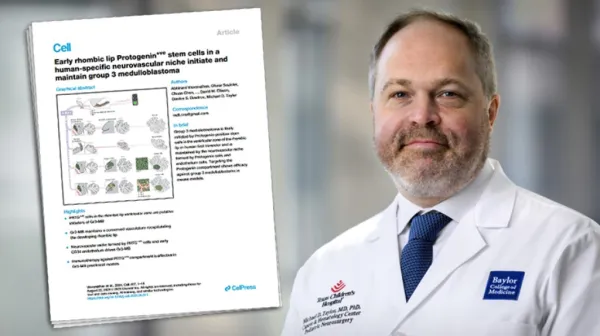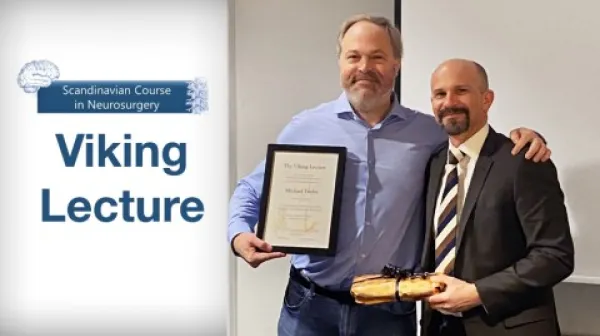Neurosurgery
Programs and Services
Our neurosurgeons are part of a multidisciplinary team treating patients at Texas Children’s Brain Tumor Program, which is one of largest of its kind in the US, and the Skull Base Program, which has received recognition from the North American Skull Based Society. Neurosurgical aspects of brain tumor treatment include surgically removing all or part of the tumor. Skull base diseases include noncancerous and cancerous tumors and other conditions at the bottom of the skull. Our teams in both programs provide expert care in diagnosis, sophisticated testing and delicate procedures to help cure these conditions.
The Cerebral Palsy Clinic provides patients and families with comprehensive assessment and treatment for children with cerebral palsy and related conditions. Physical Medicine and Rehabilitation, Neurology and Developmental Pediatrics and Autism physicians assist with clarification of diagnosis, treatment of associated conditions, and schooling recommendations/community resources. Children who will benefit from surgical intervention are also assessed and referred to appropriate surgical specialists.
The Craniofacial Program at Texas Children’s Hospital treats children from birth to age 19 with facial, jaw and skull abnormalities in a family-centered environment. The complex conditions we treat include craniosynostosis, Apert and Crouzon syndromes and Treacher Collins syndrome. We are actively involved in research that will help us treat our patients, including those with cleft lip and palate.
Texas Children’s Epilepsy Surgery Program is a leader in innovative palliative and curative treatments surgical options for epilepsy. We’re improving the lives of children with seizures by expanding the use of Laser Ablation Surgery for Epilepsy that allows for precision treatment delivered to the exact area of the brain that causes a child’s seizures, clarifying diagnoses through invasive seizure monitoring, and investigating genetic causes and treatments for seizures.
Texas Children’s Motion Analysis and Human Performance Laboratory is one of the only pediatric labs of its kind in the state. Using specific computer and sensor technology, our interdisciplinary team analyzes detailed information about the child’s movement patterns, muscle activation and force generation during functional tasks such as walking, running and jumping.
A neurovascular disorder — such as narrowing, hardening or malformation of the blood vessels — is a condition that disrupts normal blood flow and oxygen circulation to the brain and spinal cord. This can lead to hemorrhaging, clotting, stroke and other serious complications.
Our specialists at Texas Children’s Neurovascular Clinic and Vascular Anomolies Center see patients with a range of complex neurovascular disorders described on our Conditions We Treat page.
The Neurosurgery Program’s Plagiocephaly Clinic is at the forefront of treating children with this correctable head shape condition. Because plagiocephaly has a natural progression of ongoing improvement, our interdisciplinary team use a conservative management approach. Therapeutic options that play a critical role include being repositioned often, wearing a helmet, and/or physical therapy.
The multidisciplinary team at our Spasticity Management Clinic evaluates children with spasticity, dystonia and related conditions, and creates personalized treatment strategies to maximize function, ease pain and improve their quality of life. Our Motion Analysis and Human Performance Laboratory is considered best practice for ambulatory children undergoing pre-operative assessment. Surgical tone management strategies that we utilize include selective dorsal rhizotomies (including the minimally invasive focal dorsal rhizotomy, dorsal-ventral or palliative rhizotomies), intrathecal baclofen pumps, deep brain stimulation and selective peripheral neurectomy.
The Spina Bifida Program treats patients with various types of spina bifida from birth until 18 years of age. Patients are seen by members of an interdisciplinary medical team according to the severity of their condition. Nutrition, social services and physical therapy are also available.
Our team can often diagnose spina bifida in developing babies before birth. At the Texas Children's Fetal Center, certain malformations can be treated in utero. Other surgeries take place after the baby is born.
The Neurosurgery team of pediatric neurosurgeons takes part in treating pediatric patients in the Traumatic Brain Injury Clinic who have sustained a traumatic brain injury (TBI). From non-sports related concussions to severe TBIs, we work with other brain injury experts to evaluate, treat and manage of the symptoms and long-term effects associated with brain injuries.
The Vascular Anomalies Center treats vascular malformations and vascular tumors that result from the abnormal development and growth of vascular tissues, including arteries, veins, capillaries and lymphatic vessels. Texas Children’s has seen patients with vascular conditions for more than 15 years. Our interdisciplinary team includes 40 specialties and subspecialties.
Related Departments
Explore more

Texas Children’s Pediatric Neurosurgeon and Orthopedic Surgeon Collaborate to Make a Life-Chang...




Dr. James J. Riviello Awarded the 2023 Roger and Mary Brumback Lifetime Achievement Award by the ...

Texas Children’s Hospital Remains No. 1 Pediatric Hospital in the State of Texas for 15th Conse...








